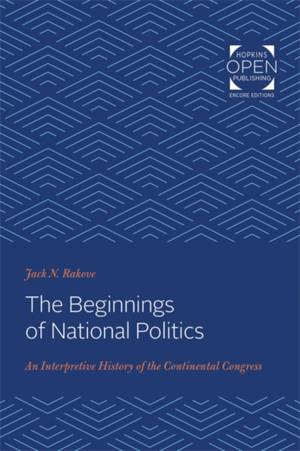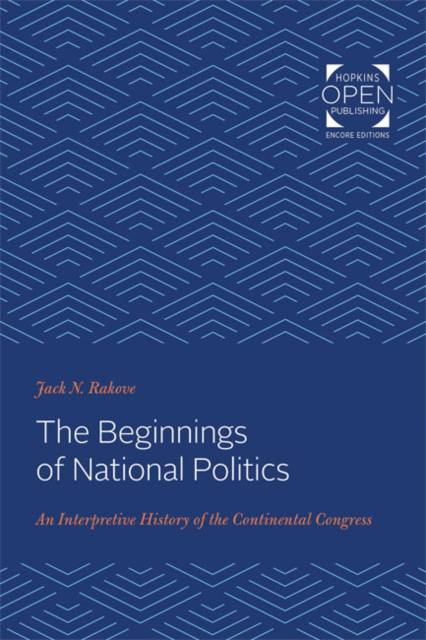
- Afhalen na 1 uur in een winkel met voorraad
- In januari gratis thuislevering in België
- Ruim aanbod met 7 miljoen producten
- Afhalen na 1 uur in een winkel met voorraad
- In januari gratis thuislevering in België
- Ruim aanbod met 7 miljoen producten
The Beginnings of National Politics
An Interpretive History of the Continental Congress
Jack N RakoveOmschrijving
Originally published in 1982. Despite a necessary preoccupation with the Revolutionary struggle, America's Continental Congress succeeded in establishing itself as a governing body with national--and international--authority. How the Congress acquired and maintained this power and how the delegates sought to resolve the complex theoretical problems that arose in forming a federal government are the issues confronted in Jack N. Rakove's searching reappraisal of Revolution-era politics. Avoiding the tendency to interpret the decisions of the Congress in terms of competing factions or conflicting ideologies, Rakove opts for a more pragmatic view. He reconstructs the political climate of the Revolutionary period, mapping out both the immediate problems confronting the Congress and the available alternatives as perceived by the delegates. He recreates a landscape littered with unfamiliar issues, intractable problems, unattractive choices, and partial solutions, all of which influenced congressional decisions on matters as prosaic as military logistics or as abstract as the definition of federalism.
Specificaties
Betrokkenen
- Auteur(s):
- Uitgeverij:
Inhoud
- Aantal bladzijden:
- 507
- Taal:
- Engels
Eigenschappen
- Productcode (EAN):
- 9781421430584
- Verschijningsdatum:
- 1/12/2019
- Uitvoering:
- Paperback
- Formaat:
- Trade paperback (VS)
- Afmetingen:
- 152 mm x 229 mm
- Gewicht:
- 739 g

Alleen bij Standaard Boekhandel
Beoordelingen
We publiceren alleen reviews die voldoen aan de voorwaarden voor reviews. Bekijk onze voorwaarden voor reviews.









